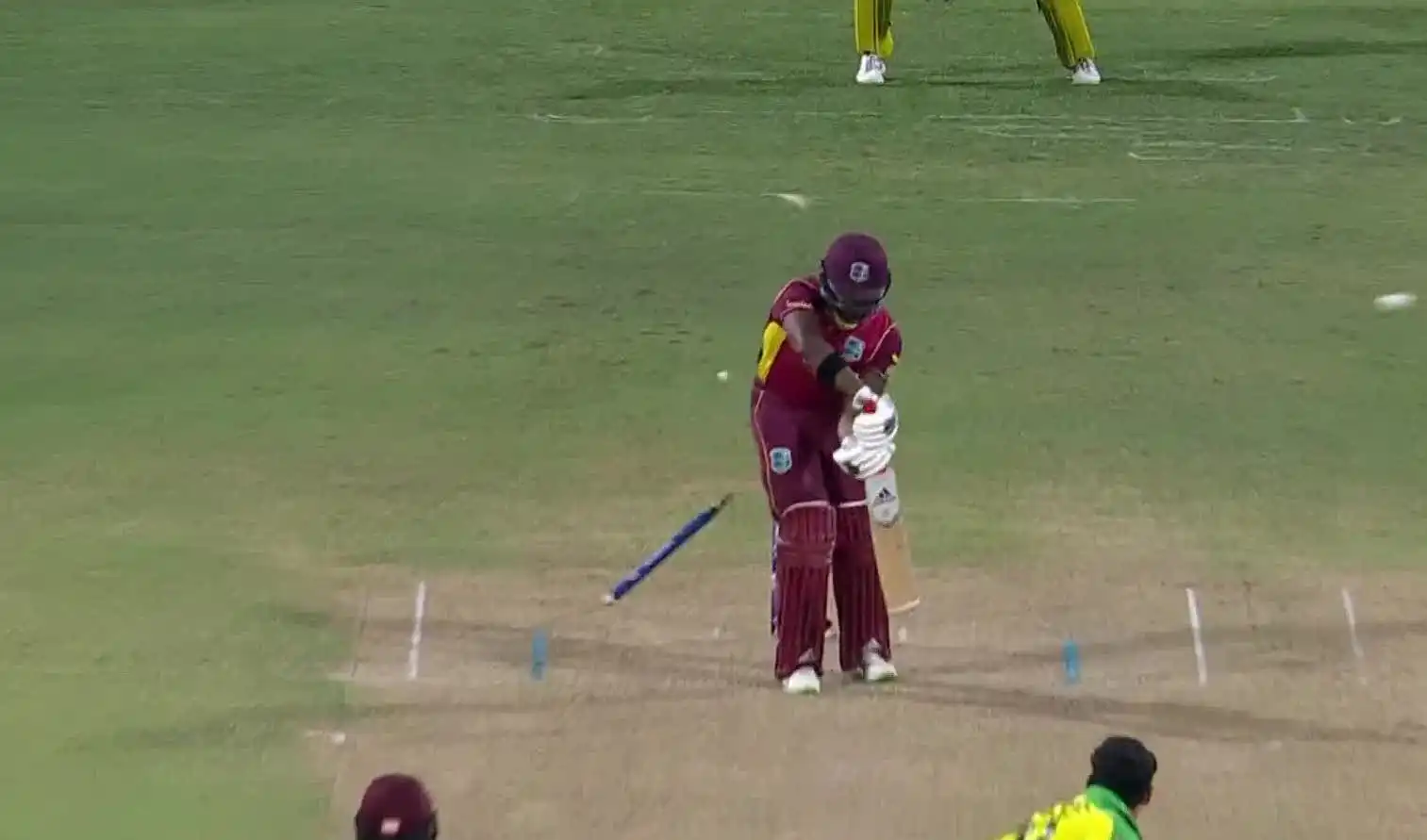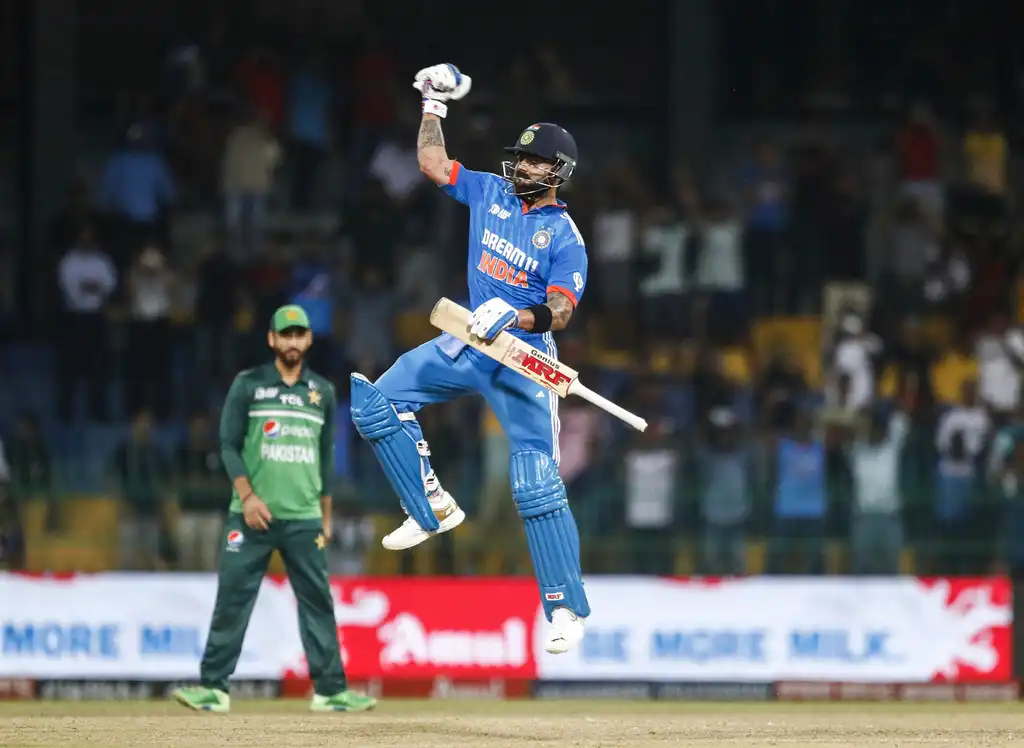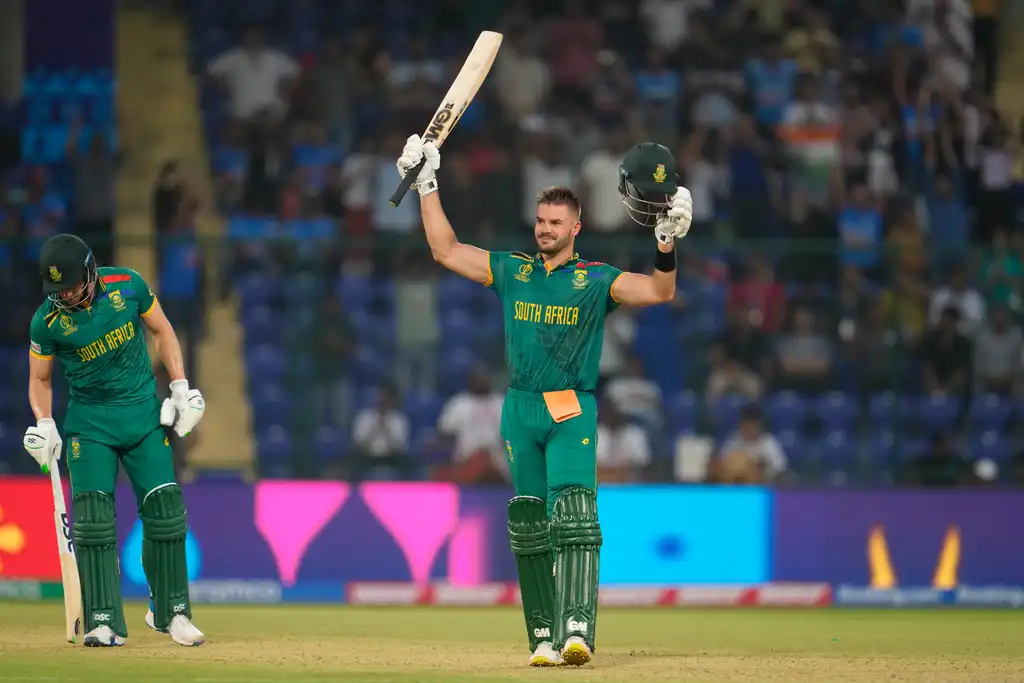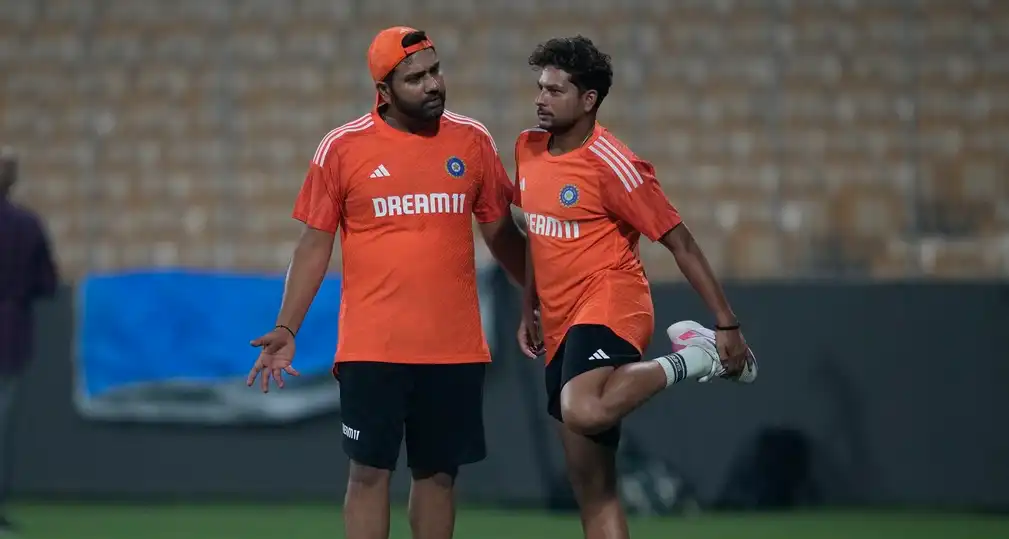 Tim Southee saved his best for England in 2015 WC (x.com)
Tim Southee saved his best for England in 2015 WC (x.com)
Throughout the history of the ODI World Cup, there have been remarkable bowling performances that have left an indelible mark on the one-day format.
Bowlers renowned for their precision and ability to move the ball have frequently dismantled opposition batting line-ups. These exceptional spells have often been instrumental in their teams' success, including notable performances by Glenn McGrath in 2007, Zaheer Khan in 2011, and Mitchell Starc in 2015, contributing to their respective World Cup victories.
As we embark on the 2023 World Cup campaign, fans can look forward to witnessing more of these extraordinary moments. But before we dive into the action, let's revisit some incredible spells delivered by bowlers on the grandest stage of them all.
Here are the Top 5 best bowling figures in ODI World Cup history:
| S. No. | Bowlers | Figures | Opposition |
|---|---|---|---|
| 1. | Glenn McGrath | 7/15 | Namibia in 2003 |
| 2. | Andy Bichel | 7/20 | England in 2003 |
| 3. | Tim Southee | 7/33 | England in 2015 |
| 4. | Winston Davis | 7/51 | Australia in 1983 |
| 5. | Gary Gilmour | 6/14 | England in 1975 |
5) Gary Gilmour- 6/14 vs England, 1975 World Cup
 Gary Glimour. (Source: PA Photos)
Gary Glimour. (Source: PA Photos)
In the inaugural ODI World Cup's first semi-final at Headingley, Australia's Gary Gilmour made a stunning debut in the 1975 edition. He delivered a once-in-a-generation bowling performance against the host nation- England, registering match figures of 6/14 in 12 overs, including six maiden overs. This remarkable spell remains the most economical bowling performance in ODI World Cup history to date.
Gilmour's exceptional performance marked the first instance of a bowler taking six wickets in a One-day game. Captain Greg Chappell's astute decision to include Gilmour as a surprise package in such a crucial match paid off handsomely. The left-arm pacer's spirited spell was instrumental in Australia's victory, propelling them to the final.
4) Winston Davis- 7/51 vs Australia, 1983 World Cup
 Winston David. (Source: Getty)
Winston David. (Source: Getty)
During an era when the West Indies boasted a fearsome fast bowling quartet in Malcolm Marshall, Andy Roberts, Michael Holding, and Joel Garner, it was Winston Davis who etched his name in history in Leeds against Australia. Davis achieved an extraordinary feat by recording match figures of 7/51 in just 10.3 overs. This exceptional performance unfolded as Australia attempted to chase down a target of 253 but was eventually dismissed for 151.
After the Australian opening pair had already made their way back to the pavilion, one retired hurt and the other bowled by Roberts, Davis dismantled the Australian middle order. His remarkable spell set a record at that time for the most wickets taken in a World Cup match and marked the first-ever seven-wicket haul in the history of ODIs.
3) Tim Southee- 7/33 vs England, 2015 World Cup
 Tim Southee. (Source: ICC)
Tim Southee. (Source: ICC)
In Wellington, Tim Southee delivered a career-defining performance, dismantling England's batting lineup with a remarkable 7/33 in just nine overs. He restricted them to a paltry total of 123 all-out. The Black Caps then strolled to victory with eight wickets in hand and a staggering 226 balls to spare, concluding the day-night match well before the floodlights were needed.
It was a masterclass in swing and seam bowling. Southee's renowned consistency posed a formidable challenge to the English batsmen. The way the ball moved through the air and off the pitch, it felt as though he was bowling with the red Dukes ball on an English wicket. His exceptional display left England struggling and ensured a convincing victory for New Zealand.
2) Andy Bichel- 7/20 vs England, 2003 World Cup
 Andy Bichel. (Source: Getty)
Andy Bichel. (Source: Getty)
Just two days after Glenn McGrath's remarkable performance, his bowling partner, Andy Bichel, took on the responsibility of limiting Australia's Ashes rival England to a below-par total of 204 for 8. Bichel was the hero, claiming seven wickets while conceding just 20 runs from his full quota of 10 overs.
Initially, England seemed to be in control at 66 for no loss in 9.4 overs, but Bichel's brilliant bowling turned the tide of the match. He was instrumental in reducing England to 87 for 5, spearheading Australia's comeback. Bichel returned to the attack to break a crucial 90-run sixth-wicket partnership between Alec Stewart and Andrew Flintoff, giving Australia the advantage. But Bichel's contribution didn't stop with the ball; he also made a valuable contribution with the bat, scoring a quick 38-ball 34. His all-around performance played a pivotal role in Australia's nail-biting two-wicket victory in the final over.
1) Glenn McGrath- 7/15 vs Namibia, 2003 World Cup
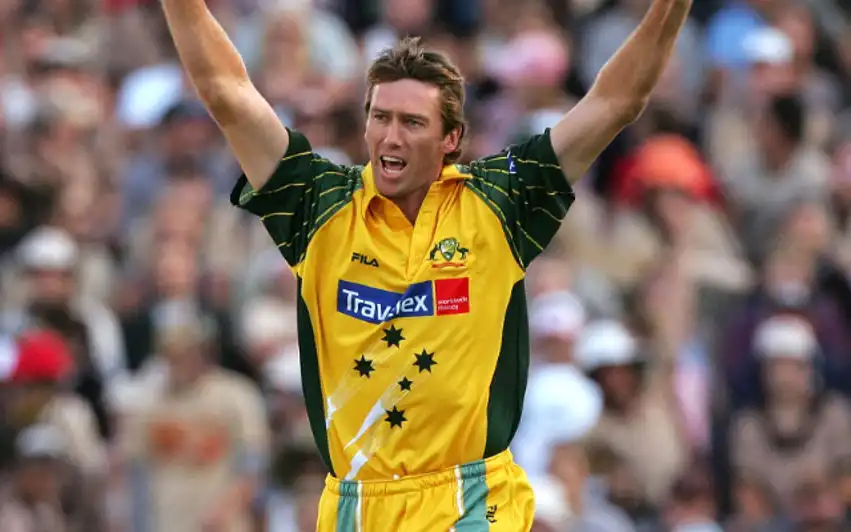 Glenn McGrath. (Getty)
Glenn McGrath. (Getty)
In a memorable match during the 2003 World Cup league game in Potchefstroom, Glenn McGrath, Australia's premier fast bowler, delivered a masterful performance against a vulnerable Namibian batting lineup. Australia had set a formidable total of 301, and McGrath went on to create history with astounding figures of 7/15. This remarkable achievement surpassed his previous best of 5/14, a record he had established during the 1999 World Cup.
McGrath's seven-wicket haul included the dismissals of Jan-Berrie Burger, Morne Karg, Gavin Murgatroyd, Danie Keulder, Louis Burger, Deon Kotze, and Bjorn Kotze. Glenn's performance was nothing short of exceptional, and it not only solidified his status as the all-time leading wicket-taker in World Cup history with a total of 71 scalps but also secured him the distinction of having the best bowling figures ever recorded in the tournament's storied history.
